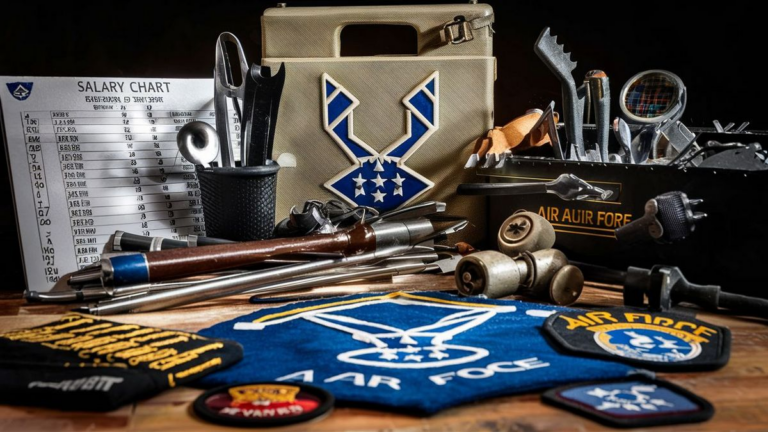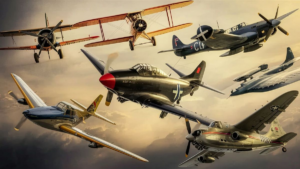When it comes to pursuing a career as an aircraft mechanic in the Air Force, one of the crucial aspects that prospective candidates often inquire about is the salary. Understanding the compensation structure for this specialized role is essential for individuals considering a career in aviation maintenance within the military.
The Basics of Aircraft Mechanic Salary in the Air Force
The salary for an aircraft mechanic in the Air Force is determined by various factors, including rank, years of service, and additional qualifications. As with many military positions, the compensation package is structured to reflect experience and expertise.
Rank and Salary
Rank plays a significant role in determining the salary of an aircraft mechanic in the Air Force. Higher-ranking individuals typically receive a higher base pay, reflecting their level of responsibility and experience. As mechanics progress through the ranks, they can expect an increase in their salary.
Years of Service
Experience is another key factor influencing the salary of Air Force aircraft mechanics. Those with more years of service receive additional compensation, acknowledging their dedication and accumulated expertise. This incentivizes long-term commitment to the Air Force and the aviation maintenance field.
Additional Qualifications
Acquiring additional qualifications, such as specialized certifications or training in advanced aircraft systems, can also impact an aircraft mechanic’s salary. The Air Force recognizes and rewards individuals who invest in expanding their skill set to enhance the overall capabilities of the aviation maintenance team.
Benefits Beyond Salary
While salary is a crucial consideration, it’s important to note that Air Force aircraft mechanics also enjoy a range of benefits that contribute to their overall compensation package. These benefits may include healthcare coverage, housing allowances, and educational opportunities, providing a comprehensive support system for individuals and their families.
Job Satisfaction and Career Growth
Beyond financial considerations, working as an aircraft mechanic in the Air Force offers unique opportunities for job satisfaction and career growth. The sense of pride and accomplishment that comes with ensuring the safety and functionality of military aircraft adds intrinsic value to the profession.
Choosing a career as an aircraft mechanic in the Air Force involves considering various factors, with salary being just one component of the overall compensation package. As individuals embark on this rewarding journey, they should weigh the financial aspects alongside the intangible benefits and opportunities for personal and professional development.
Frequently Asked Questions
Curious about the intricacies of an aircraft mechanic’s career in the Air Force? Here are some frequently asked questions that shed light on specific aspects of this specialized role:
1. Are there bonuses for specialized certifications?
Yes, the Air Force provides financial incentives for aircraft mechanics who obtain specialized certifications or undergo advanced training in specific aircraft systems. These additional qualifications contribute to the overall expertise of the maintenance team.
2. What educational opportunities are available?
In addition to on-the-job training, the Air Force often offers educational opportunities for aircraft mechanics to pursue further studies or acquire advanced degrees. This commitment to continuous learning enhances both individual capabilities and the overall effectiveness of the aviation maintenance workforce.
3. How does deployment impact compensation?
Deployment can lead to additional allowances and benefits for aircraft mechanics. The Air Force recognizes the challenges associated with deployment and provides financial support, including hazard pay and other incentives, to compensate for the demands of these assignments.
The Role of Technology in Aircraft Maintenance
Advancements in technology have significantly influenced the field of aircraft maintenance. Aircraft mechanics in the Air Force now work with cutting-edge tools and systems, necessitating continuous adaptation and learning to stay at the forefront of the industry.
| Technology | Impact on Maintenance |
|---|---|
| Diagnostic Software | Facilitates quicker and more accurate identification of aircraft issues, streamlining maintenance processes. |
| Unmanned Aerial Vehicles (UAVs) | Introduction of UAVs has created new maintenance challenges and opportunities for specialized training. |
| Augmented Reality (AR) | AR applications assist mechanics in visualizing complex maintenance procedures and accessing real-time information. |
Community and Camaraderie
Being an aircraft mechanic in the Air Force goes beyond individual tasks. The strong sense of community and camaraderie within the aviation maintenance teams fosters collaboration and mutual support, contributing to a positive and fulfilling work environment.
See also:






